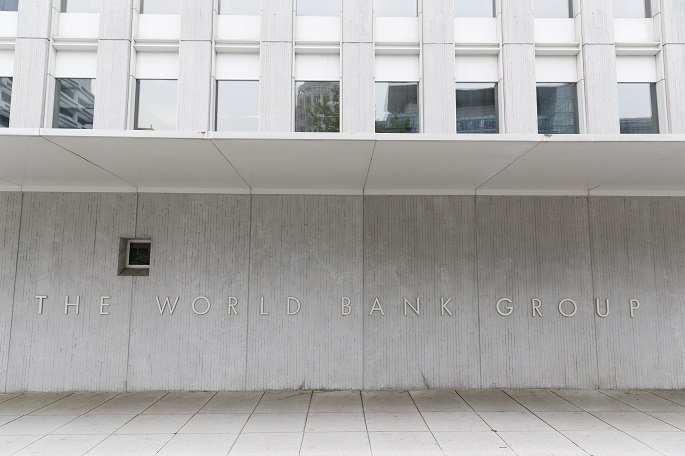WB projects global economy to shrink by 5.2% in 2020
Published : 08 Jun 2020, 20:14
Updated : 08 Jun 2020, 20:27
The global economy is on track to shrink by 5.2 percent this year amid the COVID-19 pandemic, the deepest recession since the Second World War, the World Bank Group said in its latest Global Economic Prospects released Monday.
Economic activity in advanced economies is anticipated to contract 7 percent in 2020 as domestic demand and supply, trade, and finance have been severely disrupted, the report said. The U.S. economy is projected to shrink by 6.1 percent this year, while Euro Area could see a 9.1-percent contraction.
Emerging market and developing economies (EMDEs), meanwhile, are expected to contract by 2.5 percent this year, "their first contraction as a group in at least sixty years," according to the report. The economic activity in Latin America and the Caribbean, in particular, could plunge by 7.2 percent in 2020.
Growth in East Asia and Pacific is projected to fall to 0.5 percent in 2020, the only region that could see growth this year, the report said. The Chinese economy is expected to grow by 1 percent this year.
Per capita incomes are expected to decline by 3.6 percent, which will tip millions of people into extreme poverty this year, the World Bank said.
"This is a deeply sobering outlook, with the crisis likely to leave long-lasting scars and pose major global challenges," said Ceyla Pazarbasioglu, World Bank Group vice president for Equitable Growth, Finance and Institutions.
The report also noted that the blow is hitting hardest in countries where the coronavirus epidemic has been the most severe and where there is heavy reliance on global trade, tourism, commodity exports, and external financing.
While the magnitude of disruption will vary from region to region, all EMDEs have "vulnerabilities" that are magnified by external shocks, the report said.
It added that interruptions in schooling and primary healthcare access are likely to have "lasting impacts" on human capital development.
"Our first order of business is to address the global health and economic emergency," Pazarbasioglu said. "Beyond that, the global community must unite to find ways to rebuild as robust a recovery as possible to prevent more people from falling into poverty and unemployment."
Under the baseline forecast -- which assumes that the pandemic recedes sufficiently to allow the lifting of domestic mitigation measures by mid-year in advanced economies and a bit later in EMDEs, and that adverse global spillovers ease during the second half of the year -- global growth is forecast to rebound to 4.2 percent in 2021, according to the report.
Advanced economies are expected to grow 3.9 percent next year and EMDEs could bounce back by 4.6 percent, the report showed.
However, "the outlook is highly uncertain and downside risks are predominant," including the possibility of a more protracted pandemic, financial upheaval, and retreat from global trade and supply linkages, the report noted.
A downside scenario could lead the global economy to shrink by as much as 8 percent this year, followed by a sluggish recovery in 2021 of just over 1 percent, with output in EMDEs contracting by almost 5 percent this year.
"The current episode has already seen by far the fastest and steepest downgrades in global growth forecasts on record," said World Bank Prospects Group Director Ayhan Kose. In the previous Global Economic Prospects report released in January, the multilateral lender projected global economy to grow by 2.5 percent this year.
"If the past is any guide, there may be further growth downgrades in store, implying that policymakers may need to be ready to employ additional measures to support activity," Kose said.
In the report, the World Bank also urged governments to take steps to alleviate the adverse impact of the crisis on potential output by placing a renewed emphasis on reforms that can boost long-term growth prospects.
"The pandemic has laid bare the weaknesses of national health care and social safety nets in many countries," the report noted. "It is necessary to put in place social benefit systems that can provide an effective, flexible, and efficient safety net during disasters."


